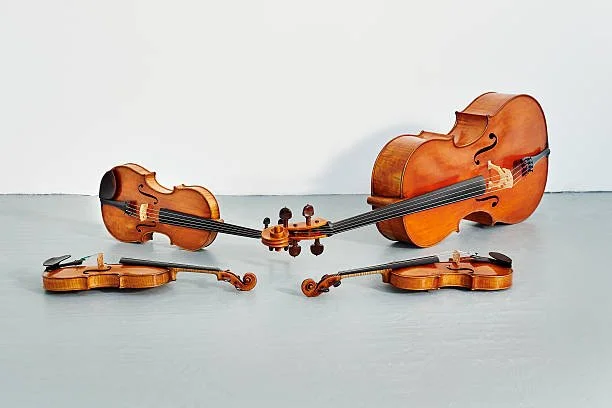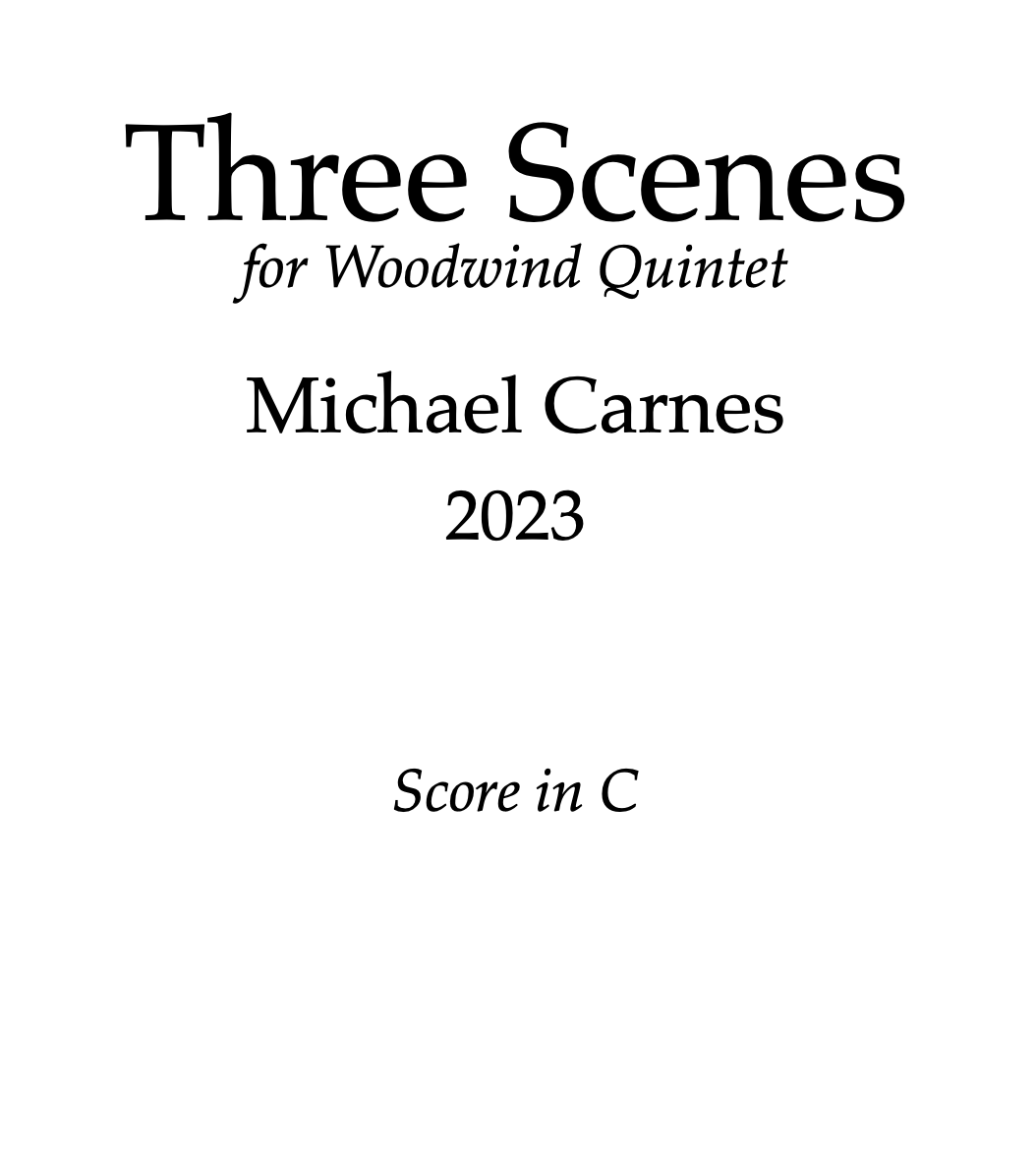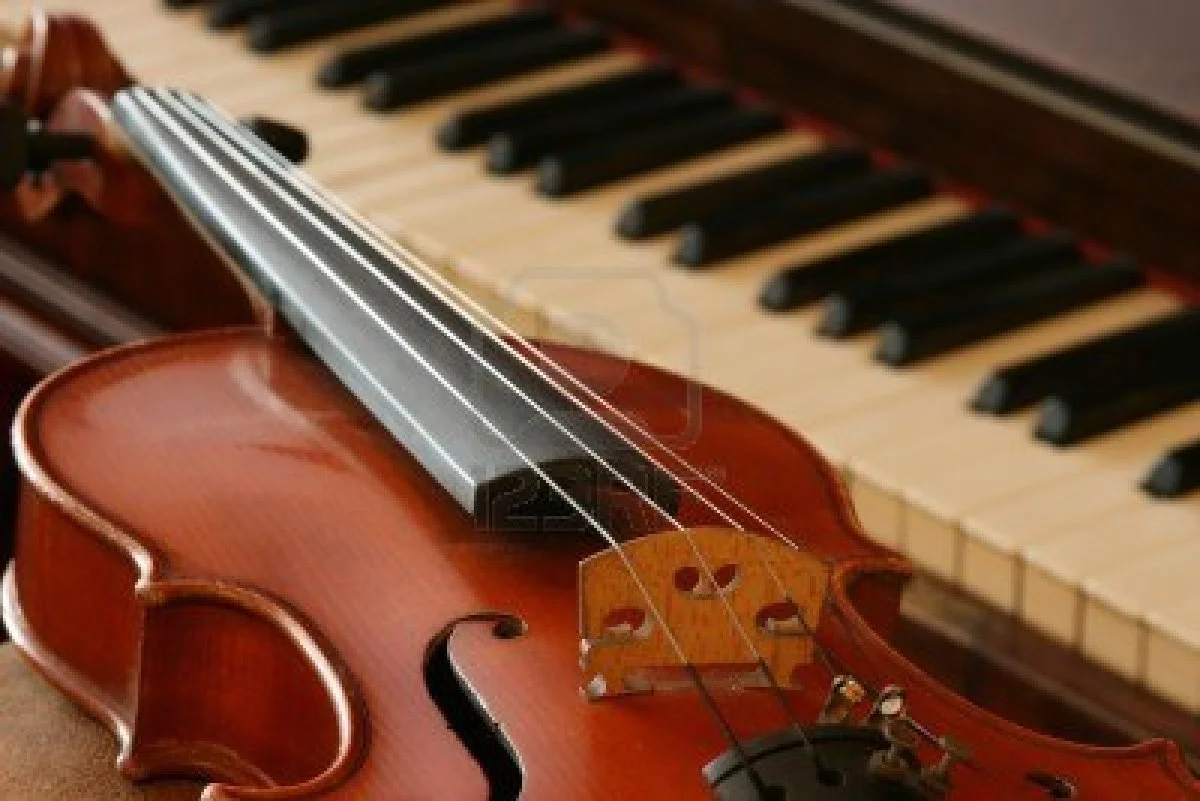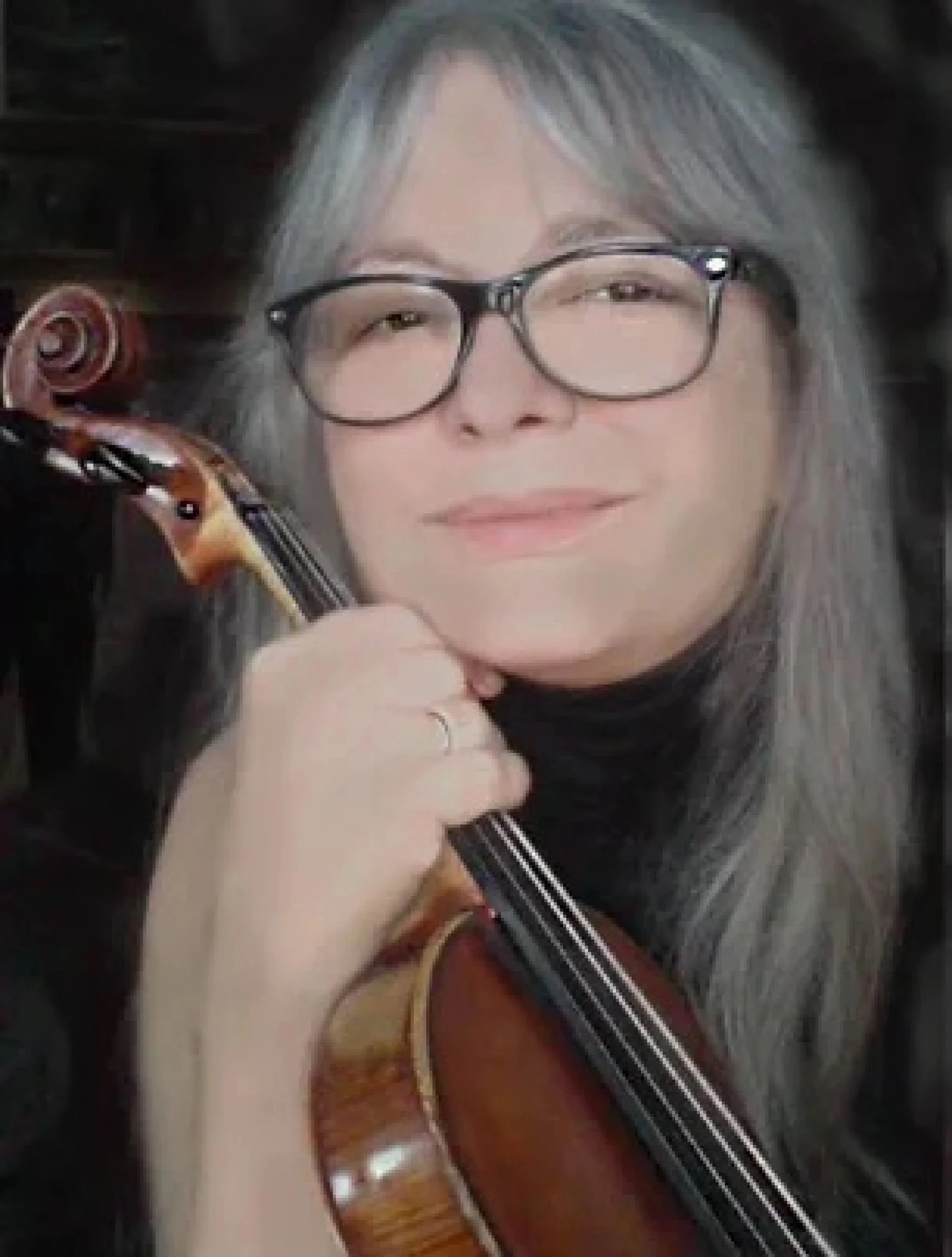Finishing Up the Audio Recording Part of Life
I’ve had some great advice along the way, and I’ve shared some of what I’ve learned on this website. I’ve recorded lots of superb musicians—some well known around the world. But as I’ve become more involved in composing again I’ve realized there simply isn’t time to do recording any more. Dragging equipment around (getting there early and leaving late) and the many unseen hours and days of cleanup and mastering don’t leave me the time I need for writing or family. So I’m calling it a day.
I still have a number of things to record for the upcoming academic year and I’m going to enjoy them. I’m not accepting any new projects and I’ll be finished with all this activity less than a year from now. It’s been quite a ride, but I have other things to do and other places to be.
Many of you who visit my website have come for these technical articles. There might be one or two more, but each one of those takes as much time as a recording project. If you have originally come for those articles, I hope you’ve stayed for the music. I’m planning on much more of that, and you’re always welcome to drop in.
I began recording classical music around 1980 or before. In the beginning it was music of my own: performances that wouldn’t have been captured otherwise. I had a lot to learn! But by 10 years later, I was developing some skill. Groups began to ask me to record their concerts. It was always mainly avocational—a way of giving back to the community. I charged for really big projects, but I made it a point not to take on many of those. I used many recordings to improved the reverbs I wrote when I was Exponential Audio.
Upcoming performances: Acellorimba for Cello and Marimba
Way back in 1985, I wrote a tricky and fast-moving duo for cello and marimba. It was named, of course, Acellorimba. The performers were Karen Kaderavek and Nancy Zeltsman. You can learn about the piece and hear that first performance here. The premiere was given to a packed house at Sanders Theater on the campus of Harvard
This came during the heyday of my time with Composers in Red Sneakers. Nowadays it’s hard to imagine that a concert of new chamber music could draw a crowd, but Boston was full of ensembles of all sorts and concert-going was part of the fabric of the place. It was hectic: in the space of just a few weeks there were pieces to be composed, rehearsed and premiered. In six weeks, you’d do it all over. The focus, of necessity, was always on the next piece and not the last one. I suppose this was the way it used to be, once upon a time…
I heard from Karen recently to learn that she’s brining Acellorimba back to the stage—this time with marimbist Sebastian Buhts. There will be two performances as part of the Adirondika Pro Musica series, in the beautiful Adirondack region of New York State, nestled right next to Canada If you’re in the area, here’s where you can hear it:
July 6 at 7:30 - Childwold Memorial Presbyterian Church in Childwold NY
July 7 at 7:30 - Adirondack Presbyterian Church in Lake Clear, NY
Other composers on the program are Haydn, Beethoven, Holstein and Mozart. I’m delighted to know this piece will be played by such highly skilled and musical performers.
Upcoming performance: Three Scenes for Woodwind Quintet
I’m happy to let you know that my new woodwind quintet will be getting its first performance this July 31 at Westminster College. The auditorium is one of the nicest spaces for chamber music in Salt Lake City, and the performers are absolutely first-rate. It will be a part of the longstanding Intermezzo series. If you’re in the neighborhood, you’ll be more than welcome. For more information, visit the Intermezzo site.
Spidgin, a short and flashy piece for Flute and Piano
Perhaps you haven’t been introduced to Spidgin. It dates to 2007. I’ve always envisioned Spidgin as a perfect little encore piece. It’s fast, flashy and virtuosic. the flute and piano chase each other around the score, only lining up together on a few occasions over its two minute span.
It also holds an unusual position in my oevre. I was camping down in southern Utah, enjoying astronomy under dark skies with friends. I got a call telling me the piece was being played in Salt Lake City that day. I’d known nothing about it—hadn’t been to rehearsals, gotten a concert notice, nothing. And there simply wasn’t time to dash back up to SLC and take a much-needed shower. I know it was performed, since I saw a review in a local paper a day or two after. But I wasn’t there and no recording was made. I have plenty of other pieces that were performed and un-recorded. But never a premiere. So, for now, I have a nice rendering instead. Please listen to it here.
Then: for those who are no more
This is a sort of memento mori, written in 2021 during the still-growing wave of Covid. My original intention was to write a sort of memorial piece for those who had been taken by this disease. But I expanded it to take note of all the dead everywhere: all who had once lived but are no more. The only thing stranger than death may be life itself. There is a time in life when we experience the world as ourselves. We think what we think, see what we see, and experience a panoply of emotions.
At death, that all ends. But we still live in a more indirect way in the thoughts and memories of those who knew us. But in time they pass, and perhaps we still appear in family histories with an even dimmer glow. And at some point that’s gone as well. But all of us, present and past, are likely to have some recollection of a time we were most alive. We think of that as Then.
This piece has not yet received a performance, but I hope that changes before long. For now, you’re welcome to listen to a high-quality digital rendering
Brass Quintet #3: A blast from the past (in more ways than one)
Back in 1997, I started another brass quintet. I’d already written two of them as well as another piece for brass and small ensemble (which has been withdrawn). All of them were played multiple times around the Northeast.
This piece turned out a little differently. It’s my only work for brass quintet that has not been performed. When I finished it, my regular quintets had disbanded. I didn’t have time to pursue new opportunities, since my technology career had begun eating into my time. I think this is the best of them. It’s flashy and virtuosic. While based on a 12-tone row, it refers strongly to tonality in many places. The five movements are:
1 - Fanfare. Short and simple—maybe deceptively obvious , to be revisited in the last movement
2 - Irregularities. Played in mutes, with clashing meters between groups. Occasionally comedic
3 - Toccato. A wild movement, with much close counterpoint
4 - Canzona. Song-like with alternating theme and chorales.
5 - Reprisals. The fanfare again, this time torn to shreds.
I’ve attempted many renderings of this piece, but never had one that captured a sense of the piece. But the tools keep improving, so I have a new one that finally feels right. Perhaps it will find its way to a stage.
A New Woodwind Quintet
Just a few weeks ago I finished my first woodwind quintet. While I’ve always been partial to winds, I’ve never ventured into this form before. It was great fun to write and I hope it comes out that way to the listener.
It’s essentially a celebration of counterpoint. One of my earliest musical memories is one of voices moving with and against one another. It was Bach, of course. My music has never sounded remotely like Bach, but the influence has always been there at an increasingly deep level. The three scenes are as follows:
1 - Rounds. This is the most obviously contrapuntal movement, joyfully throwing out canons of all sorts. There are inversions, retrogrades
2 - Perpetuum Mobile - Does what it says on the tin, with a single quick line moving among instruments with just a few bits of homophony here and there
3 - Chorale - a more contemplative movement that focuses precisely on voicing of chords. It’s externally homophonic, but is based internally on the counterpoint that’s the core of the entire piece.
Moments: A Short Suite for Violin and Piano
Early in 2021, the Covid pandemic was raging across the world. I’d retired just a few months before and was finally able to resume serious composition. This is the first piece that came from that time and contains some of the feelings possibly shared by a great many of us.
The movements are as follows:
You’re It - A little game of close tag. The violin and piano are never far apart, but are each playing their own bits of music. At the very end, they team up for one short jazzy line. At the time, my granddaughter—quite young — would invite me outdoors to play tag. There wasn’t that much room to play, so the matches usually dissolved into giggles.
PriorityThread - perhaps a more familiar sort allegro, at least externally. There’s fast passage work that covers a fairly dramatic range. The instruments jump rapidly back and forth between lead and supporting roles—each taking brief priority. Perhaps they were feeling a little cooped up. I know I was.
A Moment for Mon - We all felt loss during this period. We still do. My mother—already dealing with the encumbrances of real old age —was stricken by the Covid virus. She received excellent, skilled and loving care and appeared to be improving. Then, in just a matter of hours, she was gone. There is no way to know how her last moment felt, but perhaps it was a little like this.
I hope that I’ll be able to share a live recording of this piece some time in the next year or so. But for now, I hope this rendering gives you a sense of the piece.
Update on a Duet
Just a few months ago, I announced a new duet, Bagatelles for Clarinet and Viola. I had written the piece for two old friends in Park City, Russell and Leslie Harlow. Only a couple of weeks after I delivered the piece, Leslie learned she had an aggressive lung cancer. She fought as well as she could, but only survived a little way into the new year.
Leslie founded the first chamber music series in Park City and made music there for something like 40 years. Early on, she was joined by her husband Russell (who had founded Nova Chamber Music, his own series in Salt Lake City). I never saw her when she wasn’t cheerful and funny—even when she was doing so much of the work needed to keep a chamber music series going. The last few phone conversations the three of us had were full of laughs and musical insight.
In time, Russell and I will sort out what’s to become of the piece in terms of performance. In any case, it will bear a permanent dedication to both of them. In the mean time, I invite you to listen to an audio rendering of the piece.. It’s sunny and playful (and quite tricky), not unlike Russell and Leslie.
20 years on: Updating a symphony
In 2003 the New England Philharmonic, under the baton of Richard Pittman gave the premiere of my symphony Challenger. I only had a fragment of that performance here on the website, since I didn’t have clear permission to post the whole thing.
I’d long felt the piece needed a few revisions and corrections, but it took until my years of retirement that I could take that on. That’s now accomplished and you can hear the entire piece here The performance uses a virtual orchestra, but one that is a considerable step forward. Most of the corrections involve only some small changes in orchestration. A few allow the piece to spread out just a little.
There’s one additional significant change: a dedication. The piece originally bore no dedication, but it now gives thanks to Richard Pittman. Here’s what the score says:
When I began school at Berklee in 1975, I'd already been a working guitarist for several years. But I'd reached a crossroads and knew there was much more to learn--both on the guitar and about music in general. I quickly found a home-away-from-school in Jordan Hall, the principal concert space of New England Conservatory. Quite a few of those concerts were conducted by a young Richard Pittman. While the ensembles were always good to begin with, Pittman brought out that little something extra. I began to get a sense of what 500 years of musical culture really meant. It didn't take me long to know I wouldn't be going out on the road again.
As it turns out, Pittman had a much larger profile in the Boston area, most notably with Boston Musica Viva, the New England Philharmonic and the Concord Orchestra. I began to have pieces played around the area, but never had the chance to really sit down with him. Life was busy. Finally, the New England Philharmonic decided to perform Challenger. I was excited to work with someone who'd been such a part of those formative years. Dick (as he insisted on being called) was convivial, humble, and knew the piece inside-out.
The Philharmonic is comprised of a few full-time professionals and a larger proportion of well- trained musicians who'd decided to pursue other ways of making a living. They were hard-working and fearless (new music was a staple with this group). I remain deeply appreciative of the many weeks they put into this piece. It was a gutsy first performance.
I came back to the piece in 2023, although I'd been thinking about it much longer. It needed some revisions and clarifications. While it did not have a dedication in 2003, it was obvious that Dick Pittman should be recognized. He suffered a major stroke in 2020 and it's likely that he'll not lift a baton again. But his influence on generations of musicians in Boston is significant and will carry on down the years.
Please give yourselves 13 minutes to listen to the piece.







